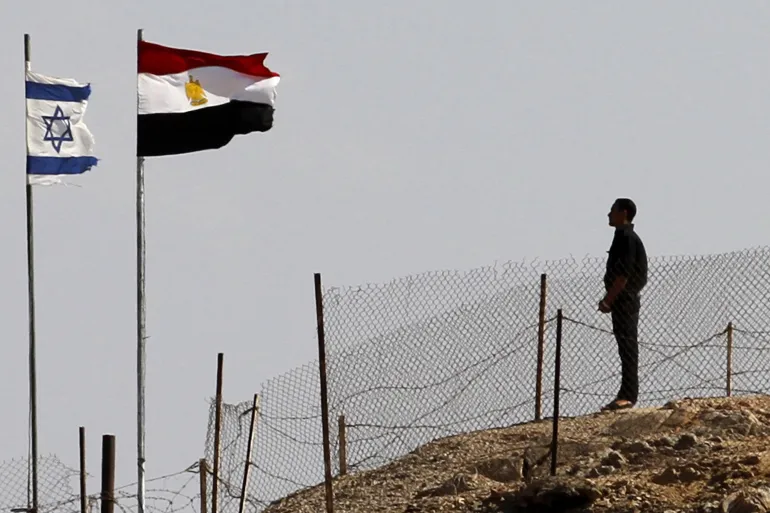A Gateway to Uncertainty: The Rafah Crossing’s Fate Amidst Egypt-Israel Tensions.
Rafah Crossing on Edge: Egypt-Israel Tensions Threaten Humanitarian Crisis in Gaza.
In recent months, Egypt has been at the forefront of negotiations to conclude a ceasefire agreement between Israel and Palestine, while also engaging in a bitter conflict with Israeli forces along its borders. The situation escalated when two Egyptian army soldiers were killed in a clash with the Israeli army at the Rafah crossing on June 7th.
The Israeli regime’s strategy is to continue the genocide, famine, and siege of Palestinians in Gaza by occupying the Rafah border crossing, which is the main entry point for aid into the Gaza Strip. This move has sparked fears of a humanitarian disaster, especially due to the lack of food and fuel.
Behind the tension between Egypt and Israel lies the fate of the Rafah crossing. The Israeli regime has repeatedly tried to shift the blame onto Egypt, claiming that Cairo should open the crossing to allow humanitarian aid into Gaza. However, Egyptian officials have consistently rejected these claims, stating that the responsibility lies with Israel.
The tripartite meeting between Egyptian, American, and Israeli authorities in Cairo on June 13th focused on reopening the Rafah crossing, with Egypt emphasizing the need for Israel to withdraw from the vital artery of Gaza.
The Israeli regime’s plan to capture the Philadelphia Corridor, a strategic axis that covers the entire western strip of the Gaza Strip, has been reported by the Wall Street Journal. This corridor has economic, security, and strategic importance from a geopolitical perspective.
The Philadelphia axis was established as a buffer zone inside the Gaza Strip, parallel to the border with Egypt, under the 1979 Camp David agreement. While Israel controlled the axis until 2005, it was later handed over to self-governing organizations. In 2007, a new security agreement was signed, allowing 750 Egyptian border guards to be present in the area.
The Israeli regime has repeatedly claimed that the Philadelphia axis is used for transferring weapons to Gaza, but Egypt has rejected these claims and warned that Israeli control over the corridor could violate security protocols signed between the two countries.
Furthermore, the Israeli regime’s plan to forcibly migrate Palestinians from the Gaza Strip to Sinai has raised concerns. Egypt has consistently rejected such proposals, with former President Hosni Mubarak having rejected similar offers from Tel Aviv in the past.
As tensions between Egypt and Israel continue to escalate, the fate of the Rafah crossing and the humanitarian situation in Gaza hang in the balance.

